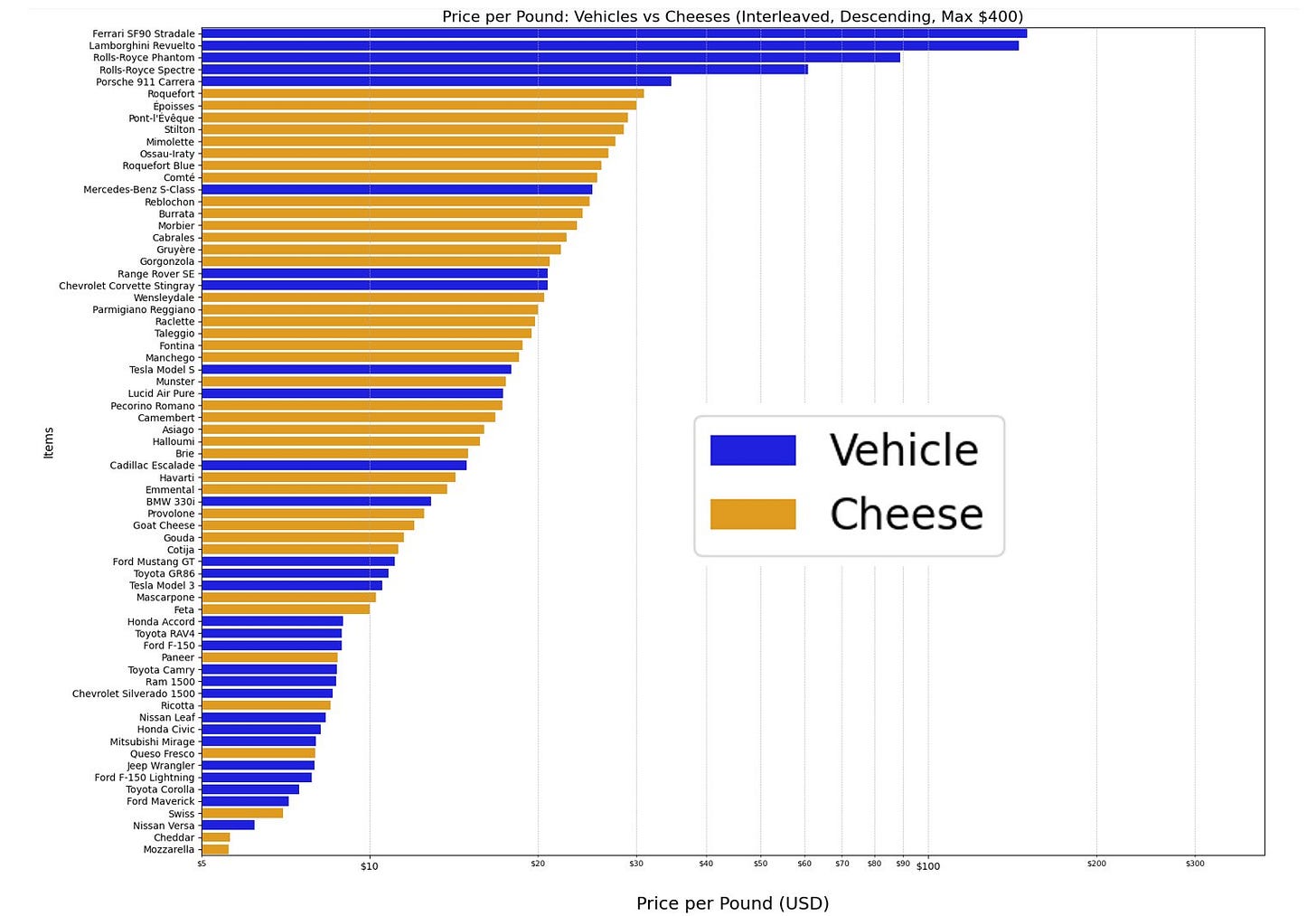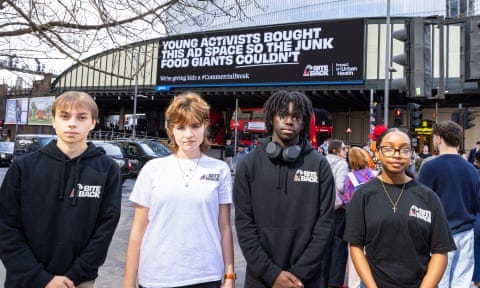Taxes are what we pay for civilized society - Oliver Wendell Holmes, US Supreme Court Justice
This week:
The ‘welfare class’ is all of us - Tax season is a great time to consider who really benefits and who pays
Plus, Meta and Google both go to antitrust court.
How do you counter an idea once it’s become ingrained?
In the U.S., these ideas are just held as truth.
Ideas such as ‘the American Dream’, self-determination, and opportunity. That you need only work hard enough and take the right chances, and you have an equal chance as any to make it here.
The counter “truth” to this is that those who live in poverty are in some way at personal fault. Lazy. Drug Addicted. Choosing to live off the successes of others rather than work towards their own.
Any aid given is not aid but rather a disincentive to becoming self-sustaining. Or worse, to take advantage and milk the system off the taxes paid by ‘hard-working Americans’.
Maybe best captured in the symbol of the ‘welfare queen’, a term coined by then-presidential candidate Ronald Reagan, buoyed by racist stereotypes and anxieties.
Matthew Desmond’s book Poverty by America isn’t new (published in ‘23), but it is timely as many of us consider our annual tax obligation.
The American government gives the most help to those who need it least.
While it’s true that the US has a progressive federal tax rate (the percentage goes up with the income levels), that doesn’t paint the full picture of the tax burden.
For example, sales taxes are flat regardless of income. However, the poor spend nearly all of their income versus the wealthy who can save/invest more of theirs. Thus reducing their exposure.
Or a payroll tax, which is capped ($160k in ‘23), thus hitting the poor harder proportionally.
The wealthy also benefit from lower capital gains taxes and other tax loopholes/deductions out of reach for the poor.
Taken altogether, both the poor and the wealthy pay a similar total share of their income in taxes (around 25%).
However, it’s not just about raw taxes. It’s about:
Who pays taxes on wages vs. wealth
How tax burdens shape daily life (consumption vs. assets)
Where tax avoidance is possible (easy for rich, impossible for poor)
"The poor are taxed like consumers; the rich are taxed like investors."Why does it matter
Because the programs that benefit the poor tend to be the first that go on the chopping block without broader voter. Meanwhile, the ‘invisible welfare state’ of tax breaks and loopholes goes untouched.
Overwhelmingly, voters who claim the mortgage interest deduction are the very ones who oppose deeper investments in affordable housing, just as those who received employer-sponsored health insurance were the ones pushing to repeal the Affordable Care Act. It also has an inverse affect on perception of government support as American’s who rely the most on invisible programs (namely tax breaks) are the least likely to believe that the government gave them a leg up and harbor the strongest anti-government sentiments.
Meanwhile, half the country believes that social benefits from the government make people lazy. Deeply colored by who we think benefits from that aid, as more than one in seven Americans still saw Black Americans as lazy.
How do you change a bias so ingrained into the national psyche, such as I don’t want my taxes to pay for handouts? It’s not a one-shot deal by any means, but opening eyes to the tax burden is hopefully a start.
The American government gives the most help to those who need it least.
This is the true nature of our welfare state, and it has far-reaching implications, not only for our bank accounts and poverty levels, but also for our psychology and civic spirit.If we just captured all the taxes owed by the 1 percent… we could just about close the poverty gap just by collecting what we need.
TLDR… just watch this recent interview between the Matthew and Jon Stewart
Related:
30 percent of American households are classified by Pew as low income, and 19 percent are upper income. And yet a 2024 Gallup survey found that only 12 percent of Americans identified themselves as “lower class” and just 2 percent as “upper class.” In short: No one wants to be perceived as poor, and no one rich ever feels rich enough.What the Comfort Class Doesn’t Get: People with generational wealth control a society that they don’t understand.
“Of all debts, men are least willing to pay their taxes; what a satire this is on government.” - Ralph Waldo Emerson
Platforms Behaving Badly
Meta AND Google both head to court over Antitrust Charges
While Snapchat appears to be washing its hands of any child protection
“For more than 100 years, American public policy has insisted firms must compete if they want to succeed,” said Daniel Matheson, the F.T.C.’s lead litigator in the case, in his opening remarks. “The reason we are here is that Meta broke the deal.”
“They decided that competition was too hard and it would be easier to buy out their rivals than to compete with them,” From Axios Meta's copycat strategy targeted in court
From NYTimes Mark Zuckerberg Takes Stand to Defend Meta Against Antitrust Suit
If the government succeeds, the F.T.C. is likely to ask Meta to divest Instagram and WhatsApp, potentially shifting the way that Silicon Valley does business and altering a long pattern in which big tech companies have snapped up younger rivals.
The testimony has many asking, what is Facebook/Instagram anymore?
From Business Insider Instagram and Facebook are hardly social media apps anymore. Here's the proof. Meta’s argument is that Instagram and Facebook are more entertainment platforms (competing with the likes of TikTok and YT) than solely social anymore
Facebook’s heavily mediated algorithm shows me little from those still there. Instead, what I’ve noticed is the newfound stability of my bank account. Without Facebook, I spend less money, because what my news feed serves me is, and I cannot stress this enough, ads.From the Atlantic Facebook Is Just Craigslist Now
You’re still on Facebook? In this economy?
Instagram is not just one app, so it’s effectively become three different Twitters: Instagram Stories for the people you know, the grid for people you used to know (and their weddings and babies), and Reels for probing the profoundly upsetting psychic void at the heart of our country.Garbage Day asks What is Instagram now?
The email noted that the company (Snap Inc.) receives around 10,000 reports of sextortion each month—and that figure is likely “only a fraction of the total abuse occurring on the platform.”“For over a decade,” she wrote, “Google has tied its publisher ad server and ad exchange together through contractual policies and technological integration, which enabled the company to establish and protect its monopoly power in these two markets.”“No thank you but we will buy twitter for $9.74 billion if you want.”The reason so many companies have embraced such stupid metrics is both simple and self-reinforcing... On the social web, momentum is everything, and sometimes you have to lie about the size of your party to get the first people in the door.‘Views’ are lies. A “view” on the internet means even less than you think.
Other Headlines:
“They have put a face on their lawlessness. And that is an opportunity to get people to wake up.”
Reportedly, 90% of those deported by the Trump administration have no criminal record of serious crimes. Some were picked up for simply having tattoos. While it’s hard to tell every one of their stories, Kilmar’s does give this violation of our due process a face and a family to empathize with. Like George Floyd and BLM, perhaps it becomes the rallying cry as well.
Maybe the other symbol will become… a Chicago Bulls hat?
“Garcia is a Bulls fan, but he’s from El Salvador and he lives in Maryland, not Chicago,” the primetime host declared. “The Bulls lost 60 games in 2019, so why the hat?What sticks out becomes popular. What's popular becomes mainstreamPodcast Search Engine investigates: What are teenagers actually seeing on their phones? An interview with the director of the documentary Social Studies on FX.
Filmed in Los Angeles over a school year, this ambitious social experiment features a diverse group of LA teens who open up their lives and phones to offer an intimate glimpse into how social media has reshaped childhood. From battling bullying, grappling with beauty standards, coping with comparison pressures and racism, exploring sexuality, and making life-altering decisions, their compelling and relatable experiences take us on a raw, visceral and urgent journey through the challenges of growing up in the digital era.
This great global migration is a staggeringly complex phenomenon with countless causes and implications. Yet perhaps no other issue is as pressing and as little understood by the average citizen and policymaker alike. To Understand Global Migration, You Have to See It First, Using data from Meta, the NY Times helps present the clearest picture to date of how people move across the globe.
“An artist’s duty is to reflect the times in which we live.”
Not to rise above them. Not to escape them. To reflect them. To sit in the discomfort and the noise and make something true, unvarnished and inescapable. - Nina SimoneStrange Alchemy tells the story of Nina Simone and reminds us ‘art isn’t neutral. That beauty and rage can live in the same breath.’
In this study, we ...evaluate the impact of high-profile book bans on the consumption of banned books. Using a staggered difference-in-differences design, we find that the circulations of banned books increased by 12%, on average, compared with comparable nonbanned titles after the ban. Book Bans in American Libraries: Impact of Politics on Inclusive Content Consumption. The study shows that book banning may create the opposite outcome, effectively giving the material notoriety and thus spiking demand to ‘check it out.’
Girl, your recession's showingRecession Blonde: How Economic Uncertainty Spurred the Latest Hair Color Trend
From WorldCrunch Death Of The American Dream? How Trump’s Citizenship Decree Looks From Abroad
From Fast Company America, the brand, is becoming toxic

Building buzz for a new film in a media environment fractured between YouTube, TikTok, streaming and sports is tough, particularly when it is an unknown title.
“We’re opening films that have almost zero awareness,”Interesting
Watch the Great Moose Migration live feed from Sweden
Middle-Aged Man Trading Cards Go Viral in Rural Japan Town
Please let this replace this silly trend of AI action figures… I want my own middle age card
"An idea that is not dangerous is unworthy of being called an idea at all."— Oscar Wilde
Want to make Good Trouble for the competition raising their prices? - print your price on the packaging. German discounter PENNY demonstrates conviction behind providing permanently low prices.

Food companies spent an extra £420m in 2024, an increase of 26% year on year that coincided with a bumper 12 months for sales of snack foods. Shoppers bought an extra 45.4m packs of chocolate, cakes and crisps from the top-selling brands.Big brands send out barrage of junk food ads before obesity rules bite - the ban is set to go into effect in October, though notably it will not affect outdoor, audio or paid influencers.
from Little Black Book: Toothpaste Brand Smyle Calls on the Industry in Campaign Against Plastic Pollution




















